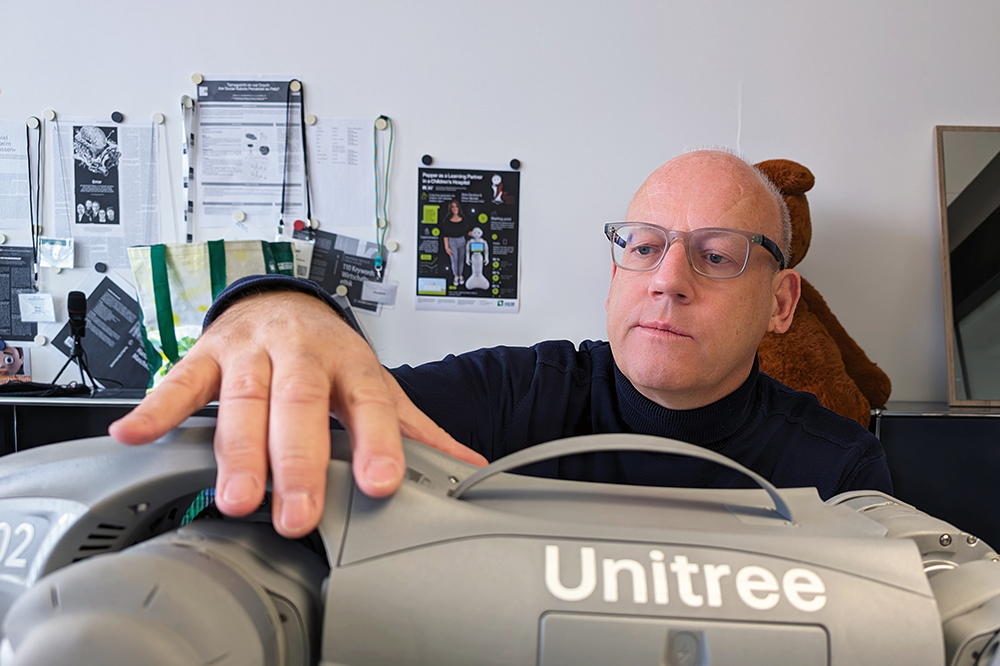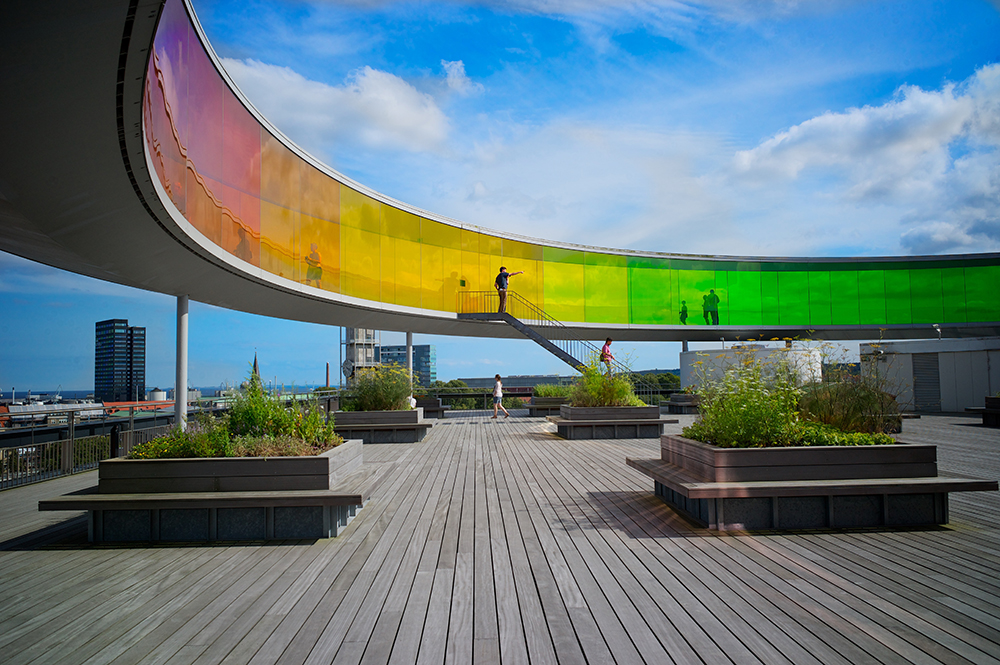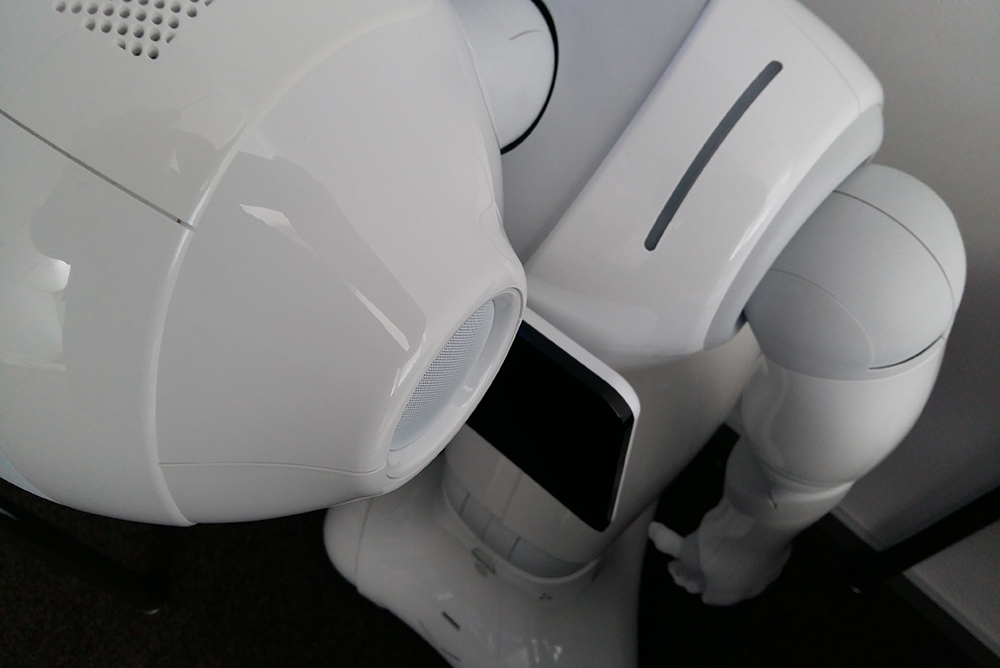The paper “Robots at arm’s length: Unveiling the dynamics of interpersonal distance preferences in human-robot interactions” by Katharina Kühne, Laura M. Zimmer, Melina Jeglinski-Mende, Oliver Bendel, Yuefang Zhou, and Martin Fischer was accepted at Robophilosophy 2024. The study focuses on the spatial distance between social robots and humans. According to the authors, the results have implications for the design of social robots and the optimization of interactions, especially in educational or medical contexts. Katharina Kühne is a PhD student in the Potsdam Embodied Cognition Group (PECoG) at the University of Potsdam. She has a diploma in language teaching, a master’s degree in linguistics, and a master’s degree in cognitive psychology. She is supervised by Prof. Dr. Martin Fischer (University of Potsdam, head of the PECoG) and Prof. Dr. Oliver Bendel (FHNW School of Business, associated researcher of the PECoG). The results of the study will be presented at Robophilosophy, which will take place in Aarhus from August 20 to 23, 2024.
Robophilosophy Conference 2024
The upcoming international Robophilosophy Conference 2024 in Aarhus is set to tackle the socio-cultural and ethical questions arising from the use of generative multimodal AIs in social robotics. The event will bring together global scholars from humanities, social sciences, social robotics, and computer science, aiming to produce actionable insights and responsibly address the socio-cultural transformations brought about by social robotics. It is part of the Robophilosophy Conference Series, known for its large scale events for humanities research in social robotics. RP2024 highlights the urgency of closer collaboration between tech experts and societal experts to establish research-based regulations. The conference will welcome 80-100 talks in plenaries, special workshops, and parallel sessions of reviewed research papers. Virtual attendance is made possible for those unable to attend in person. Interested parties are invited to submit their papers on the conference topics. Key dates to note: Deadline for workshop/panel proposal submissions is January 31, 2024. Deadline for short papers and posters is February 15, 2024. More information at cas.au.dk/en/robophilosophy/conferences/rpc2024.
The Morality Menu Project
From 18 to 21 August 2020, the Robophilosophy conference took place. Due to the pandemic, participants could not meet in Aarhus as originally planned, but only in virtual space. Nevertheless, the conference was a complete success. At the end of the year, the conference proceedings were published by IOS Press, including the paper “The Morality Menu Project” by Oliver Bendel. From the abstract: “The discipline of machine ethics examines, designs and produces moral machines. The artificial morality is usually pre-programmed by a manufacturer or developer. However, another approach is the more flexible morality menu (MOME). With this, owners or users replicate their own moral preferences onto a machine. A team at the FHNW implemented a MOME for MOBO (a chatbot) in 2019/2020. In this article, the author introduces the idea of the MOME, presents the MOBO-MOME project and discusses advantages and disadvantages of such an approach. It turns out that a morality menu could be a valuable extension for certain moral machines.” The book can be ordered on the publisher’s website. An author’s copy is available here.
Proceedings on Social Robotics
The book “Culturally Sustainable Social Robotics” (eds. Marco Nørskov, Johanna Seibt, and Oliver Santiago Quick) was published in December 2020 by IOS Press. From the publisher’s information: “Robophilosophy conferences have been the world’s largest venues for humanities research in and on social robotics. The book at hand presents the proceedings of Robophilosophy Conference 2020: Culturally Sustainable Social Robotics, the fourth event in the international, biennial Robophilosophy Conference Series, which brought together close to 400 participants from 29 countries. The speakers of the conference, whose contributions are collected in this volume, were invited to offer concrete proposals for how the Humanities can help to shape a future where social robotics is guided by the goals of enhancing socio-cultural values rather than by utility alone. The book is divided into 3 parts; Abstracts of Plenaries, which contains 6 plenary sessions; Session Papers, with 44 papers under 8 thematic categories; and Workshops, containing 25 items on 5 selected topics.” (Website IOS Press) Contributors include Robert Sparrow, Alan Winfield, Aimee van Wynsberghe, John Danaher, Johanna Seibt, Marco Nørskov, Peter Remmers, John P. Sullins, and Oliver Bendel.



